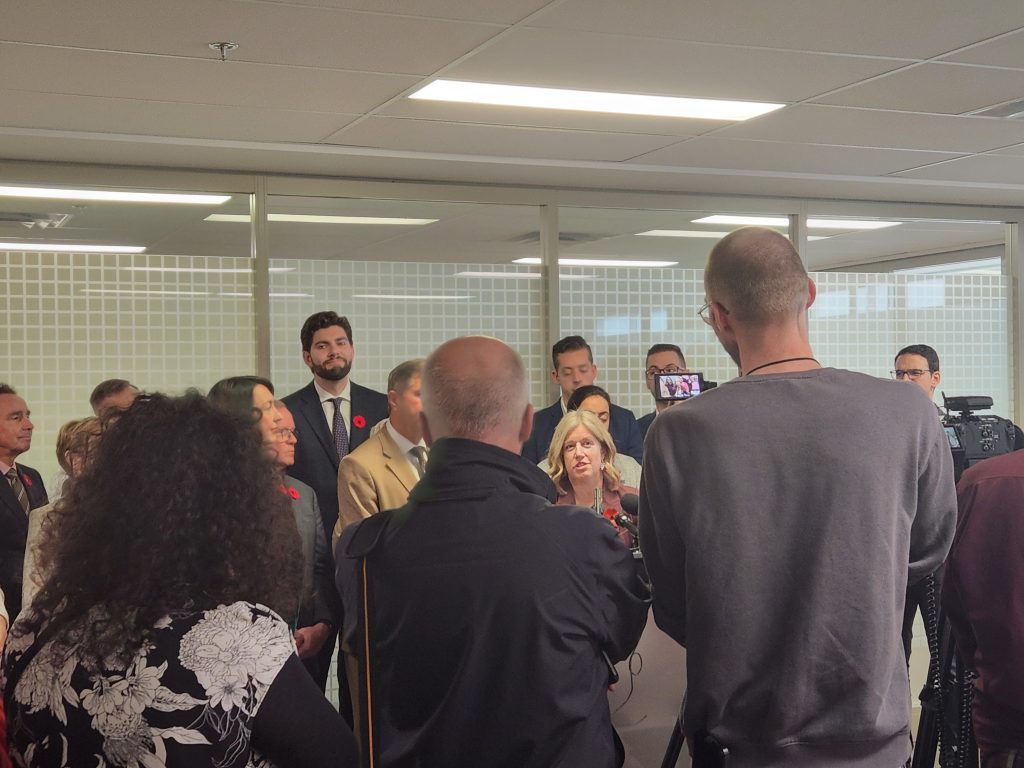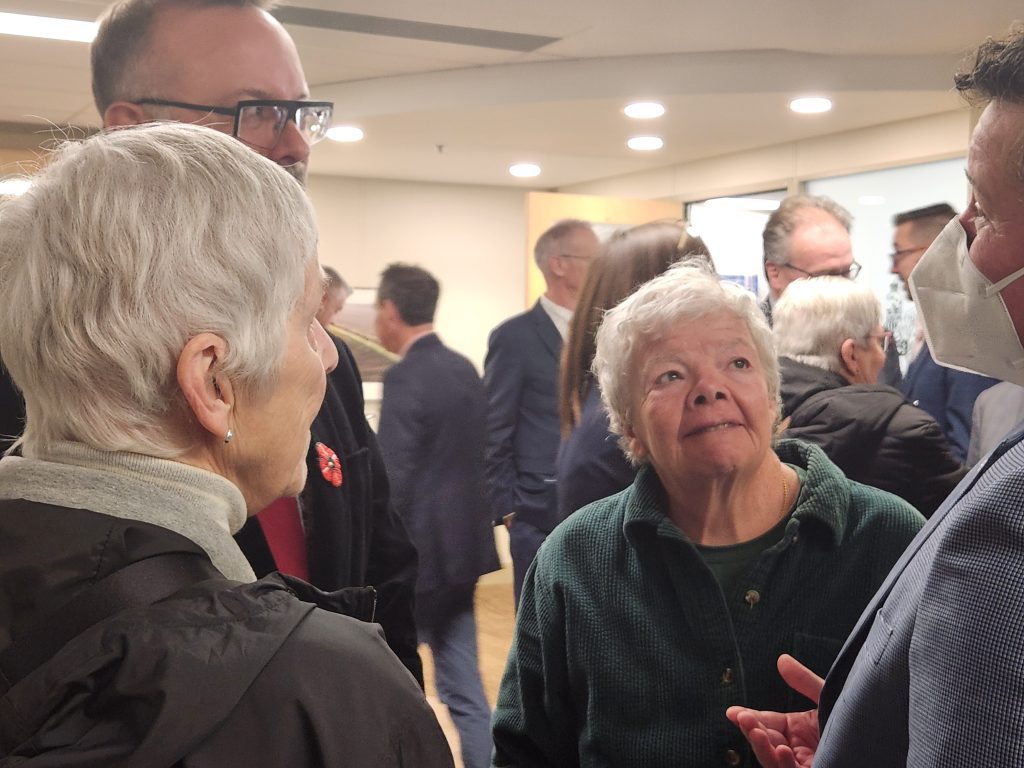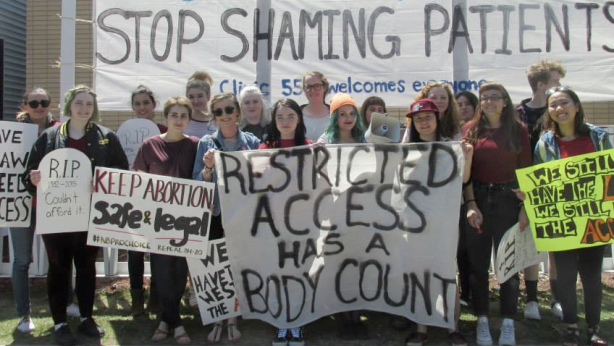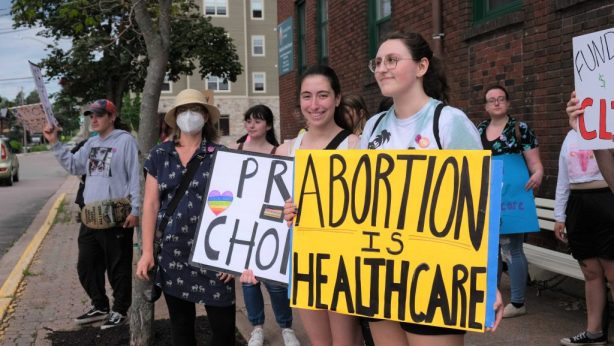‘History in the making,’ says New Brunswick abortion provider on repeal of restrictive abortion regulation
In front of an audience of abortion providers and advocates, newly elected Premier Susan Holt announced the end of a regulation that for decades restricted access to abortions in New Brunswick.
Until November 7, New Brunswick was unique in Canada for having a regulation that restricted procedural abortion services to hospital settings.
“It’s been almost 40 years in the making,” said Holt.

Clinic 554’s manager Valerya Edelman was present for the announcement.
“As manager of Clinic 554, I know that limiting access to medication abortions, long wait-times, and having to travel outside of one’s community created problems for many people,” said Edelman.
“We’ve been fighting to remove barriers to abortion access for decades with incremental success. Axing this regulation was one of the hardest battles won and it was made possible by the perseverance of community members,” added Edelman.

New Brunswick’s Liberals change course on abortion
While Canada was decriminalizing abortion and enabling greater access to abortion services, following the landmark 1988 Supreme Court decision in R v. Morgentaler, New Brunswick was figuring out how to continue restrictions on abortion access.
New Brunswick Liberal Premier Frank McKenna made headlines when he told reporters he would give Dr. Henry Morgentaler, a Holocaust survivor, the “fight of his life,” if he tried to open an abortion clinic in the province.
While McKenna failed to stop Morgentaler from opening a clinic in Fredericton, he made it extremely difficult for the clinic to operate.
Following the R v. Morgentaler decision, McKenna announced the government was limiting abortions insured in the public system to those determined to be medically required by two physicians. The abortion also had to be performed by a gynecologist or obstetrician in an approved hospital.
Before McKenna, the Progressive Conservative Richard Hatfield government amended the province’s Medical Act in 1985 to prohibit abortions performed outside of registered hospitals.
While the Morgentaler Clinic operated in Fredericton, between 1994 to 2014, it is estimated that thousands of patients paid out-of-pocket for abortions while Morgentaler, with limited financial assistance from the National Abortion Federation, subsidized many abortions for those who could not afford to pay.
When Brian Gallant’s Liberals came to power in New Brunswick in 2014, the stage was set for the removal of barriers to abortion access. However, the Gallant government only removed the rule that forced people seeking an abortion to get the permission of two obstetrician-gynecologists.
Despite calls from Reproductive Justice New Brunswick, the Fredericton Youth Feminists, labour unions and others to remove the restriction on Medicare coverage of abortions to hospital settings, the Gallant government refused.
The Morgentaler Clinic, and later Clinic 554 from 2015 to 2024, made it a practice to never turn away anyone in need of an abortion, but it meant constant financial turmoil for the clinics, ultimately leading to the end of procedural abortion services at Clinic 554 in early 2024.
“This is history in the making,” said Clinic 554’s Dr. Adrian Edgar about today’s announcement.
“I’m thankful to the many people who refused to give up and accept an unacceptable status quo. I think it’s a true testament to the value of community perseverance,” said Edgar.
While abortion providers and activists celebrated today’s news, they are looking to the future and calling for more reproductive health care access.
Dr. Edgar says, “I appreciate that this government acted with the urgency my patients and their families experienced every day under that terrible regulation. Today, we celebrate and tomorrow we hope the Department of Health will earnestly work with us to recreate, and hopefully replicate in other regions, what we had at Clinic 554.”
The New Brunswick Abortion Care Provider Network joined in the celebration of today’s news but also wants further action. The network called for a central self-referral process similar to Nova Scotia’s, that patients can use to “reach compassionate, informed nurses who will directly arrange all aspects of care.”
The network is also calling on New Brunswick to join British Columbia and Manitoba in providing free contraception.
The network joins the Madhu Verma Migrant Justice Centre in demanding access to medication and procedural abortion services for people without Medicare, including temporary foreign workers and international students.
While medical abortions, specifically the abortion pill Mifegymiso, has become more accessible, there remains a need for access to safe procedural abortions.
“We need to support the right to access all methods of abortion care, rather than merely ‘normalizing’ medication abortions while neglecting the need for care provided in clinics,” said Edelman.
“Health care is a right, and that includes abortion care,” said Edelman who was joined by a number of her social work students from St. Thomas University.
Tracy Glynn is a founder of Reproductive Justice New Brunswick and the National Director of Projects and Operations of the Canadian Health Coalition.
A longer version of this story appeared in the NB Media Co-op on November 7, 2024.


